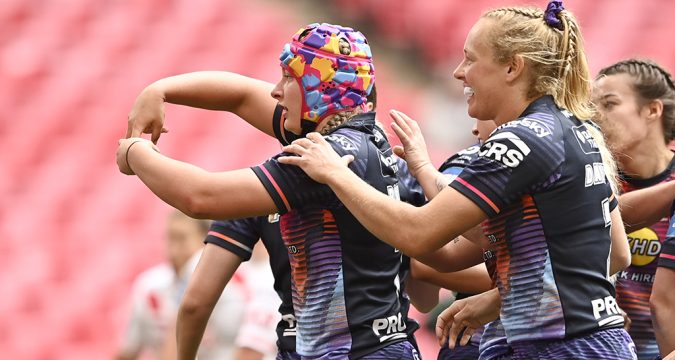 PLACING a sporting event in its historical context immediately after it has happened is generally a fool's game.
But it doesn't seem too outlandish to suggest that this final will be looked back upon in years to come as the end of one era and the start of another.
That isn't necessarily as simple as St Helens' era of dominance - in the Challe
PLACING a sporting event in its historical context immediately after it has happened is generally a fool's game.
But it doesn't seem too outlandish to suggest that this final will be looked back upon in years to come as the end of one era and the start of another.
That isn't necessarily as simple as St Helens' era of dominance - in the Challe Stronger, faster, fitter: Wigan Warriors’ next generation herald new era in women’s game
 PLACING a sporting event in its historical context immediately after it has happened is generally a fool's game.
But it doesn't seem too outlandish to suggest that this final will be looked back upon in years to come as the end of one era and the start of another.
That isn't necessarily as simple as St Helens' era of dominance - in the Challe
PLACING a sporting event in its historical context immediately after it has happened is generally a fool's game.
But it doesn't seem too outlandish to suggest that this final will be looked back upon in years to come as the end of one era and the start of another.
That isn't necessarily as simple as St Helens' era of dominance - in the Challe 